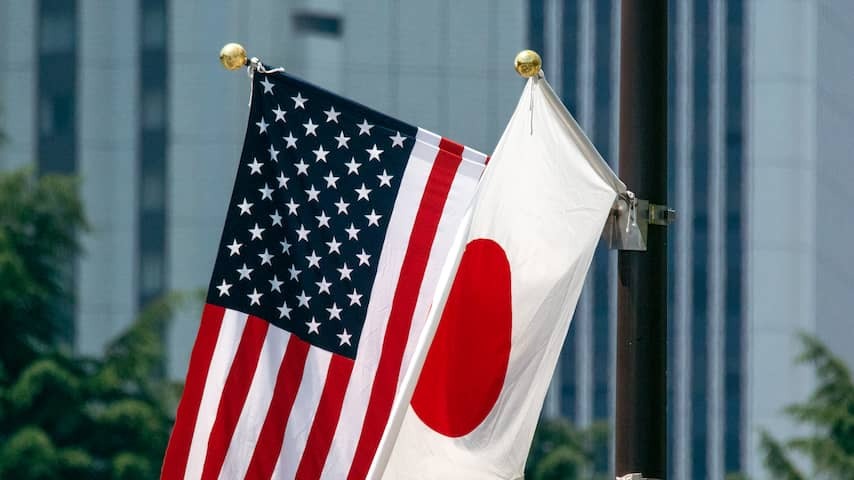
The US has once again concluded a trade agreement, this time with Japan. It is President Donald Trump’s fifth agreement since he introduced global import duties at the beginning of April. Previously, the Americans concluded deals with the United Kingdom, Vietnam, Indonesia, and China.
The US and Japan have agreed on a 15 percent levy on Japanese goods, including cars. That percentage will apply from August 1 and is lower than the current rate of 25 percent.
This means that American companies have to pay 15 percent tax if they purchase Japanese products. The reduction is important for Japanese car manufacturers who sell many vehicles in the US, because the cars become less expensive for the American consumer.
In addition, the Japanese government has pledged 550 billion dollars (469 billion euros) in investments. This includes guarantees and loans for Japanese companies that want to invest in the US, such as chip manufacturers and pharmaceutical companies. The countries have also agreed that Japan will buy more American agricultural products, including rice. However, Japanese Prime Minister Shigeru Ishiba added that the country’s own agricultural sector, which produces a lot of rice, will not suffer from this.
American car manufacturers are not happy with the agreement. They find it strange that Japanese cars are taxed at 15 percent, while American car manufacturers have to pay 25 percent if they get parts from Mexico or Canada.
Negotiations between the EU and the US are proceeding with difficulty
Trump is eager to conclude many trade agreements with other countries. He therefore introduced import duties on goods from virtually all other countries at the beginning of April. In this way, he wants to put pressure on those countries to conclude an agreement with the US.
The president had hoped to have concluded ninety agreements around this time. The count is currently at five, but negotiations are still in full swing.
For example, the European Union has been negotiating with the US for months about a trade deal. But according to Brussels insiders, those negotiations are not going so smoothly. More and more EU countries are therefore said to be prepared to take firm measures if Trump comes up with higher levies.
The American president recently threatened to introduce levies of 30 percent on European products if there is no agreement on August 1. Brussels may then want to strike back with one of its toughest instruments: the anti-coercion law. Under this law, American tech companies would have to pay extra tax, or companies from the US would be allowed to invest less in the EU or not participate in tenders.